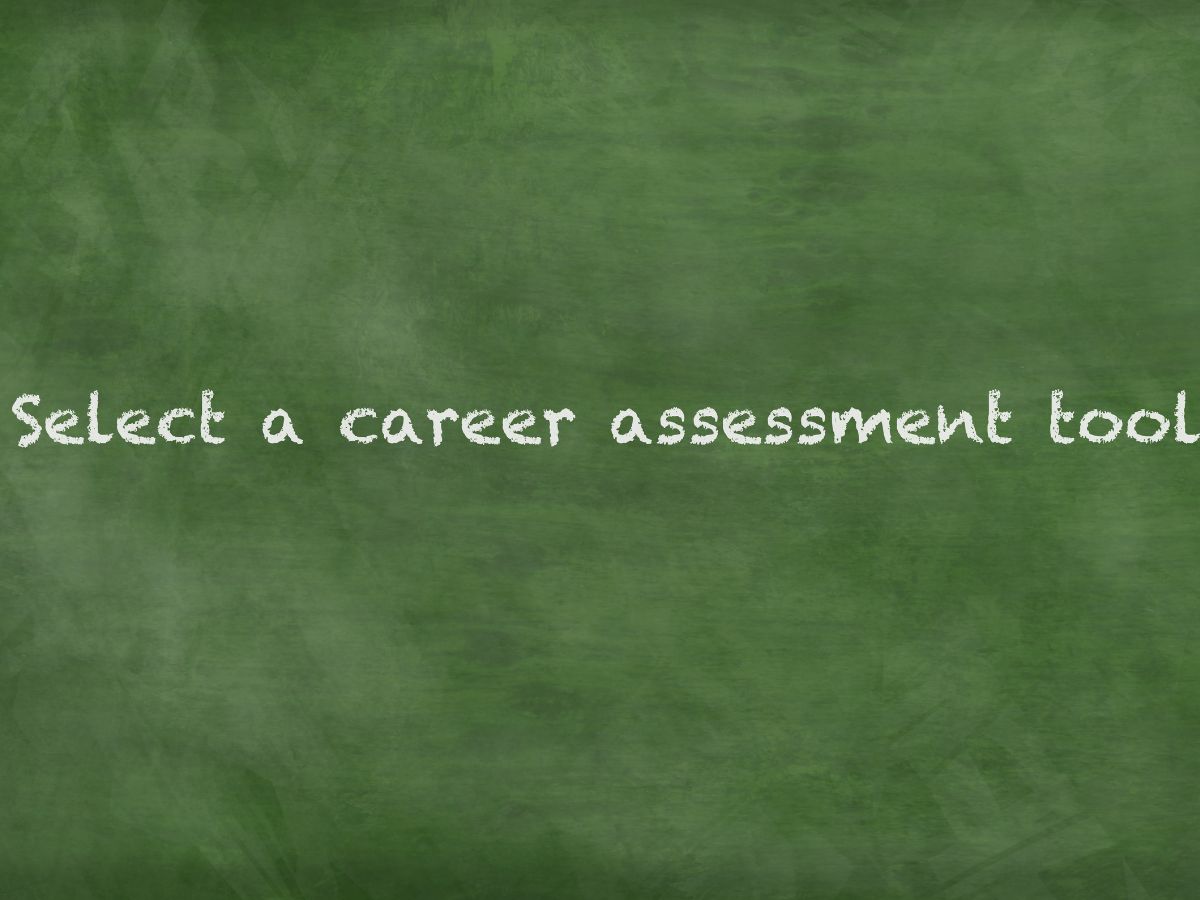Career Assessments: Definition
Career Assessments are instruments and procedures created to assist people in comprehending how their personality characteristics, interests, beliefs, and talents relate to different job alternatives. These evaluations may be conducted using exams, questionnaires, quizzes, and structured interviews, among other methods. Whether someone is contemplating a career shift, making their first professional move, or looking to grow in their existing area, the main objective is to provide insights that support informed career choices.
The Value of Career Assessment
- Self-Awareness:
By assisting people in recognizing their choices, personal qualities, and areas of strength and weakness, career evaluations help people become more conscious of themselves. Making fulfilling job decisions that are in line with one’s core motives requires this kind of self-awareness.
- Career Exploration:
Using these tools, you may investigate several career paths in an organized manner. People may focus on possibilities that best suit their profiles by learning the abilities and characteristics needed for different occupations.
- Goal setting:
Setting realistic professional objectives is made easier with the help of career evaluations. Individuals may establish specific objectives and devise practical strategies to attain them by pinpointing their areas of interest and expertise.
- Educational Guidance:
Career evaluations may help students make informed decisions about their education, including majors and courses that will help them achieve their desired careers.
- Job Satisfaction:
A better level of job satisfaction might result from matching personal qualities with job features. A more satisfying profession might arise from knowing what settings and activities best fit a person’s disposition and set of abilities. Always remember to know your self-worth at the workplace, since it may affect job satisfaction.
- Career Transitions:
Assessments may identify transferable talents and recommend new career routes based on an individual’s experience and passions for people who are thinking about changing careers.
The Most Popular Job Assessment You Should Know:
The Myers-Briggs Type Indicator (MBTI) is the most used career assessment tool. The MBTI is a personality test that divides people into 16 different personality types according to their choices in four areas: Sensing/Intuition, Thinking/Feeling, Judging/Perceiving, and Introversion/Extraversion.
This measure is widely used to assist people in grasping what kind of personality they have and how it affects their professional choices. It is used in career guidance, business growth, and personal development. The MBTI’s widespread appeal may be attributed to its all-encompassing methodology for comprehending personality traits and its pragmatic use in many contexts, such as career counseling. It aids in understanding a person’s working style, interpersonal interactions, and the kinds of positions and work circumstances in which they are most likely to succeed.
You may have missed: How to increase attendance at events
How to Find Out What Job Suits You
Selecting the ideal position requires a blend of in-depth analysis, study, and real-world experience. The following procedures may be used to choose a good job path:
- Take Career Assessments: Start with official tests such as the Holland Code (RIASEC), Strong Interest Inventory, or MBTI. These resources provide a methodical examination of your personality characteristics, interests, and skills.
- Reflecting Back on Interests and Values: Take stock of your motivations, favorite pastimes, and qualities in a career. This self-reflection might assist you in identifying professions that fit your values and areas of interest.
- Investigate Possible Careers: Look into other professions using internet resources like the Occupational Outlook Handbook and professional research websites. Examine job descriptions, necessary skills, future career paths, and typical compensation.
- Seek Professional Guidance: Coaches and career counselors may provide tailored guidance and assist in interpreting test results. They may provide information on trends in careers and the labor market.
- Acquire Experience: You may get practical experience in a variety of industries via internships, part-time employment, volunteer work, and job shadowing. This hands-on experience helps in comprehending the daily duties of a work and determining if it is a suitable match.
- Network: Make contact with experts in related disciplines. Informational interviews and networking events may provide firsthand insights into various professions and facilitate the development of relationships that might result in employment prospects.
- Constant Learning: Remain receptive to new information and growth. Enrolling in classes, going to seminars, and learning new skills might improve your credentials for desired employment and lead to new professional opportunities.
Read related post: Why are jobs so hard to get
Career Assessment for Children
A proactive strategy that assists young people in early identification of their interests, talents, and possible future pathways is career assessment for children. Although high school and college students have historically been the only ones to get career advice, the advantages of offering activities about careers to younger children are becoming more apparent. By matching a child’s education to their innate abilities and interests, these assessments have the power to influence their destiny. Children may uncover their potential and match their school path with their interests and talents with the aid of career assessments. Schools and parents can help children make intelligent choices about what they want to do in life by using age-appropriate and fun techniques in their assessments. This will result in more enthusiastic and mature people.
Importance of Career Assessment for Children
- Early Recognition: Early exposure to career ideas aids in children’s understanding of the range of jobs that are accessible. This increases their perspectives and dispels misconceptions about certain vocations.
- Self-Discovery: Career assessments promote introspection and assist kids in realizing their interests, advantages, and disadvantages. This self-awareness is essential to both intellectual and personal growth.
- Inspiration and Engagement: Children are often more driven to succeed in their academic work and other extracurricular endeavors when they see a link between their hobbies and possible vocations.
- Making Informed Decisions: Early career evaluations may help kids make well-informed decisions about their recreational and academic pursuits, helping them to match their interests with possible careers.
Methods for Career Assessment for Kids
- Interest Inventories: These resources assist in determining the kinds of things and subjects that kids like to do. The Holland Code (RIASEC) and the Strong Interest Inventory, which has been modified for use with young people, are two examples.
- Personality Evaluations: Children might benefit from the adaptation of instruments such as the Myers-Briggs Type Indicator (MBTI) and the Big Five personality characteristics to get insight into their unique personalities and how they could mesh with different career pathways.
- Tests of aptitude: These assessments evaluate a child’s proficiency in certain domains, such as spatial awareness, arithmetic abilities, and verbal reasoning. The Otis-Lennon School Ability Test (OLSAT) and the Cognitive Abilities Test (CogAT) are two examples.
- Occupation Games and Activities: Children might find job discovery entertaining and interesting when they use interactive resources like games, activity sheets, and quizzes.
How to Integrate Career Assessment into the Curriculum in Schools
Career evaluations may be included in the standard curriculum in schools via language arts, science, and social studies.
- Career Days and Workshops: Schools may host career days when experts from various areas talk to children about their employment, or hold sessions where kids can engage in practical tasks relevant to different vocations.
- Counseling and Guidance Programs: Educational counselors may help students discover their interests and aptitudes and provide personalized guidance by using career assessment tools.
- Parental Involvement: Parents may support their children in pursuing different interests and can engage in career discussions with them at home.
Conclusion
Career assessments play a crucial role in guiding individuals toward informed career choices by enhancing self-awareness, facilitating career exploration, and aiding in goal setting. By utilizing these assessments, both adults and children can align their interests and strengths with suitable career paths, ultimately leading to greater job satisfaction and fulfillment.





